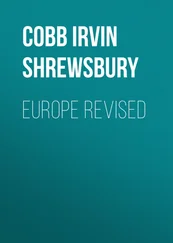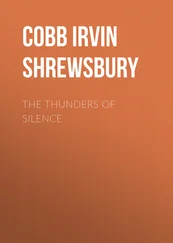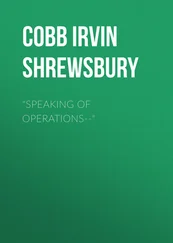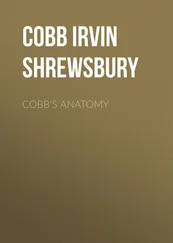Irvin Cobb - Sundry Accounts
Здесь есть возможность читать онлайн «Irvin Cobb - Sundry Accounts» — ознакомительный отрывок электронной книги совершенно бесплатно, а после прочтения отрывка купить полную версию. В некоторых случаях можно слушать аудио, скачать через торрент в формате fb2 и присутствует краткое содержание. Жанр: foreign_prose, foreign_language, на английском языке. Описание произведения, (предисловие) а так же отзывы посетителей доступны на портале библиотеки ЛибКат.
- Название:Sundry Accounts
- Автор:
- Жанр:
- Год:неизвестен
- ISBN:нет данных
- Рейтинг книги:4 / 5. Голосов: 1
-
Избранное:Добавить в избранное
- Отзывы:
-
Ваша оценка:
- 80
- 1
- 2
- 3
- 4
- 5
Sundry Accounts: краткое содержание, описание и аннотация
Предлагаем к чтению аннотацию, описание, краткое содержание или предисловие (зависит от того, что написал сам автор книги «Sundry Accounts»). Если вы не нашли необходимую информацию о книге — напишите в комментариях, мы постараемся отыскать её.
Sundry Accounts — читать онлайн ознакомительный отрывок
Ниже представлен текст книги, разбитый по страницам. Система сохранения места последней прочитанной страницы, позволяет с удобством читать онлайн бесплатно книгу «Sundry Accounts», без необходимости каждый раз заново искать на чём Вы остановились. Поставьте закладку, и сможете в любой момент перейти на страницу, на которой закончили чтение.
Интервал:
Закладка:
Answer by Bledsoe: "If you mean by performing an autopsy that they probed into him or cut in to find the bullet I will answer no, sir, they did not. They did not seem to think to do so, because it seemed to everybody such a plain open-and-shut case that Dudley Stackpole had killed him."
Question by the Reverend Mr. Hewlitt: "I take it that you are making this confession of your own free will and in order to clear the name of an innocent party from blame and to purge your own soul?"
Answer: "In reply to that I will say yes and no. If Dudley Stackpole is still alive, which I doubt, he is by now getting to be an old man; but if alive yet I would like for him to know that he did not fire the shot which killed Jess Tatum on that occasion. He was not a bloodthirsty man, and doubtless the matter may have preyed upon his mind. So on the bare chance of him being still alive is why I make this dying statement to you gentlemen in the presence of witnesses. But I am not ashamed, and never was, at having done what I did do. I killed Jess Tatum with my own hands, and I have never regretted it. I would not regard killing him as a crime any more than you gentlemen here would regard it as a crime killing a rattlesnake or a moccasin snake. Only, until now, I did not think it advisable for me to admit it; which, on Dudley Stackpole's account solely, is the only reason why I am now making this statement."
And so on and so forth for the better part of a second column, with a brief summary in Editor Tompkins' best style – which was a very dramatic and moving style indeed – of the circumstances, as recalled by old residents, of the ancient tragedy, and a short sketch of the deceased Bledsoe, the facts regarding him being drawn from the same veracious sources; and at the end of the article was a somewhat guarded but altogether sympathetic reference to the distressful recollections borne for so long and so patiently by an esteemed townsman, with a concluding paragraph to the effect that though the gentleman in question had declined to make a public statement touching on the remarkable disclosures now added thus strangely as a final chapter to the annals of an event long since occurred, the writer felt no hesitancy in saying that appreciating, as they must, the motives which prompted him to silence, his fellow citizens would one and all join the editor of the Daily Evening News in congratulating him upon the lifting of this cloud from his life.
"I only wish I had the language to express the way that old man looked when I showed him the galley proofs of Bledsoe's confession," said Editor Tompkins to a little interested group gathered in his sanctum after the paper was on the streets that evening. "If I had such a power I'd have this Frenchman Balzac backed clear off the boards when it came to describing things. Gentlemen, let me tell you – I've been in this business all my life, and I've seen lots of things, but I never saw anything that was the beat of this thing.
"Just as soon as this statement came to me in the mails this morning from that place out in Oklahoma I rushed it into type, and I had a set of galley proofs pulled and I stuck 'em in my pocket and I put out for the Stackpole place out on Clay Street. I didn't want to trust either of the reporters with this job. They're both good, smart, likely boys; but, at that, they're only boys, and I didn't know how they'd go at this thing; and, anyway, it looked like it was my job.
"He was sitting on his porch reading, just a little old gray shell of a man, all hunched up, and I walked up to him and I says: 'You'll pardon me, Mr. Stackpole, but I've come to ask you a question and then to show you something. Did you,' I says, 'ever know a man named A. Hamilton Bledsoe?'
"He sort of winced. He got up and made as if to go into the house without answering me. I suppose it'd been so long since he had anybody calling on him he hardly knew how to act. And then that question coming out of a clear sky, as you might say, and rousing up bitter memories – not probably that his bitter memories needed any rousing, being always with him, anyway – may have jolted him pretty hard. But if he aimed to go inside he changed his mind when he got to the door. He turned round and came back.
"'Yes,' he says, as though the words were being dragged out of him against his will, 'I did once know a man of that name. He was commonly called Ham Bledsoe. He lived near where' – he checked himself up, here – 'he lived,' he says, 'in this county at one time. I knew him then.'
"'That being so,' I says, 'I judge the proper thing to do is to ask you to read these galley proofs,' and I handed them over and he read them through without a word. Without a word, mind you, and yet if he'd spoken a volume he couldn't have told me any clearer what was passing through his mind when he came to the main facts than the way he did tell me just by the look that came into his face. Gentlemen, when you sit and watch a man sixty-odd years old being born again; when you see hope and life come back to him all in a minute; when you see his soul being remade in a flash, you'll find you can't describe it afterwards, but you're never going to forget it. And another thing you'll find is that there is nothing for you to say to him, nothing that you can say, nor nothing that you want to say.
"I did manage, when he was through, to ask him whether or not he wished to make a statement. That was all from me, mind you, and yet I'd gone out there with the idea in my head of getting material for a long newsy piece out of him – what we call in this business heart-interest stuff. All he said, though, as he handed me back the slips was, 'No, sir; but I thank you – from the bottom of my heart I thank you.' And then he shook hands with me – shook hands with me like a man who'd forgotten almost how 'twas done – and he walked in his house and shut the door behind him, and I came on away feeling exactly as though I had seen a funeral turned into a resurrection."
Editor Tompkins thought he had that day written the final chapter, but he hadn't. The final chapter he was to write the next day, following hard upon a dénouement which to Mr. Tompkins, he with his own eyes having seen what he had seen, was so profound a puzzle that ever thereafter he mentally catalogued it under one of his favorite headlining phrases: "Deplorable Affair Shrouded in Mystery."
Let us go back a few hours. For a fact, Mr. Tompkins had been witness to a spirit's resurrection. It was as he had borne testimony – a life had been reborn before his eyes. Even so, he, the sole spectator to and chronicler of the glory of it, could not know the depth and the sweep and the swing of the great heartening swell of joyous relief which uplifted Dudley Stackpole at the reading of the dead Bledsoe's words. None save Dudley Stackpole himself was ever to have a true appreciation of the utter sweetness of that cleansing flood, nor he for long.
As he closed his door upon the editor, plans, aspirations, ambitions already were flowing to his brain, borne there upon that ground swell of sudden happiness. Into the back spaces of his mind long-buried desires went riding like chips upon a torrent. The substance of his patiently endured self-martyrdom was lifted all in a second, and with it the shadow of it. He would be thenceforth as other men, living as they lived, taking, as they did, an active share and hand in communal life. He was getting old. The good news had come late, but not too late. That day would mark the total disappearance of the morbid lonely recluse and the rejuvenation of the normal-thinking, normal-habited citizen. That very day he would make a beginning of the new order of things.
And that very day he did; at least he tried. He put on his hat and he took his cane in his hand and as he started down the street he sought to put smartness and springiness into his gait. If the attempt was a sorry failure he, for one, did not appreciate the completeness of the failure. He meant, anyhow, that his step no longer should be purposeless and mechanical; that his walk should hereafter have intent in it. And as he came down the porch steps he looked about him, not dully, with sick and uninforming eyes, but with a livened interest in all familiar homely things.
Читать дальшеИнтервал:
Закладка:
Похожие книги на «Sundry Accounts»
Представляем Вашему вниманию похожие книги на «Sundry Accounts» списком для выбора. Мы отобрали схожую по названию и смыслу литературу в надежде предоставить читателям больше вариантов отыскать новые, интересные, ещё непрочитанные произведения.
Обсуждение, отзывы о книге «Sundry Accounts» и просто собственные мнения читателей. Оставьте ваши комментарии, напишите, что Вы думаете о произведении, его смысле или главных героях. Укажите что конкретно понравилось, а что нет, и почему Вы так считаете.












